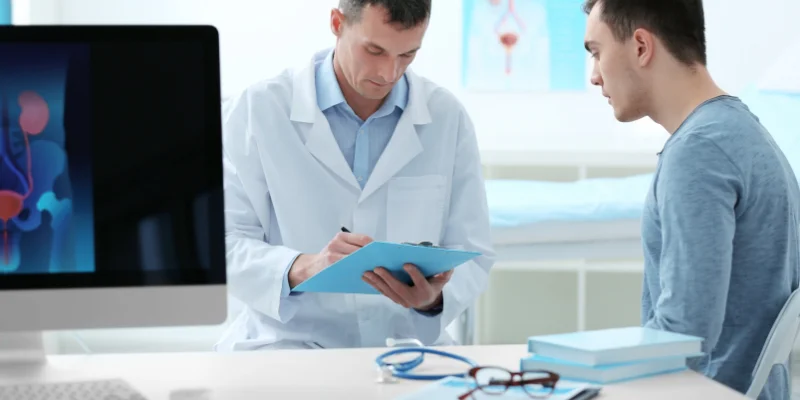Testicular Cancer: Learn How to Do a Self-check

Testicular cancer is one of the many cancers that affect men; and it should never be swept under the rug. According to the National Cancer Society Malaysia (NCSM), while testicular cancer is relatively uncommon overall, it is one of the most common cancers affecting younger men aged between 15 and 35 years. Despite this, awareness remains low in Malaysia, particularly among young men who may not realise they are at risk.
It is important for every man to check for symptoms of testicular cancer. However, it is understandable that many may not know how to perform a self-check. This article explains what testicular cancer is and provides a simple guide on how to carry out a self-exam in order to help increase awareness among both men and those around them.
If you are a woman reading this, it is equally valuable to share this information with a family member, partner, or friend.
What Is Testicular Cancer?
Testicular cancer develops in the testicles - the male reproductive organs located in the scrotum beneath the penis. These small, oval-shaped glands are responsible for producing sperm and testosterone.
Most cases occur in men aged 15 to 35, though it can also appear up to age 45. The severity of the condition depends on the type of testicular cancer, its size, and whether it has spread to other parts of the body.
Symptoms of Testicular Cancer
Testicular cancer typically affects one testicle, though in rare cases, both can be involved. Common symptoms include:
A lump or swelling in the testicle
An increase in testicle size
A dull ache or pain in the testicle or scrotum
A feeling of heaviness, firmness, or hardness in the scrotum
Other possible signs to look out for include:
Dull pain in the lower back or abdomen
Unintentional weight loss
Persistent cough
Difficulty breathing or swallowing
Soreness or swelling in the chest
Self-checking your testicles regularly helps you understand what is normal for you, making it easier to detect any changes early.
How to Perform a Testicular Self-check
Before you begin, it is important to know two things:
It is perfectly normal if one testicle is slightly larger or hangs lower than the other.
Do not mistake the epididymis - a soft, coiled tube at the back of the testicle that stores and transports sperm - for an abnormal lump. It naturally feels bumpier and softer than the testicle itself.
Here’s how to perform a self-check of the testicles:
Choose the right time: Do it during or after a warm shower when the scrotum is relaxed.
Use both hands: Gently roll one testicle between your thumb and fingers to feel its surface.
Check for abnormalities: Look out for lumps, bumps, or irregularities. Contrary to popular belief, cancerous lumps are usually painless.
Observe any changes: Take note of any differences in size, shape, or firmness over time. Some men may also experience swelling or a dull ache.
Repeat: Perform the same steps on the other testicle.
The whole process only takes about five minutes.
How Often Should I Self-check?
Performing a self-exam once a month is recommended. Regular checks help you become more familiar with your body and notice any abnormalities early. If you feel or see something unusual, don’t ignore it, consult a doctor right away.
When Should I See A Doctor?

If you find a lump, swelling, or any abnormality, make an appointment with a doctor as soon as possible. Delaying medical attention can allow the cancer to spread.
There is no reason to feel embarrassed — your doctor is there to help and ensure your well-being.
A quick physical exam will be performed, followed by questions about your symptoms. You may also be referred for an ultrasound scan, a painless and radiation-free diagnostic test that helps assess the testicles more closely.
Don’t Wait. Remember to Self-check!
Performing a testicular self-check takes just five minutes once a month. Never be ashamed to learn or talk about testicular health — awareness and early detection can save lives, including your own.
When to See a Urologist at Prince Court Medical Centre
At Prince Court Medical Centre in Kuala Lumpur, our experienced urology team and advanced facilities provide comprehensive care for urologic conditions, including testicular cancer.
Book an appointment today to consult with our urologists and take the first step towards better testicular health. Let us support you in achieving optimal well-being and peace of mind.



















